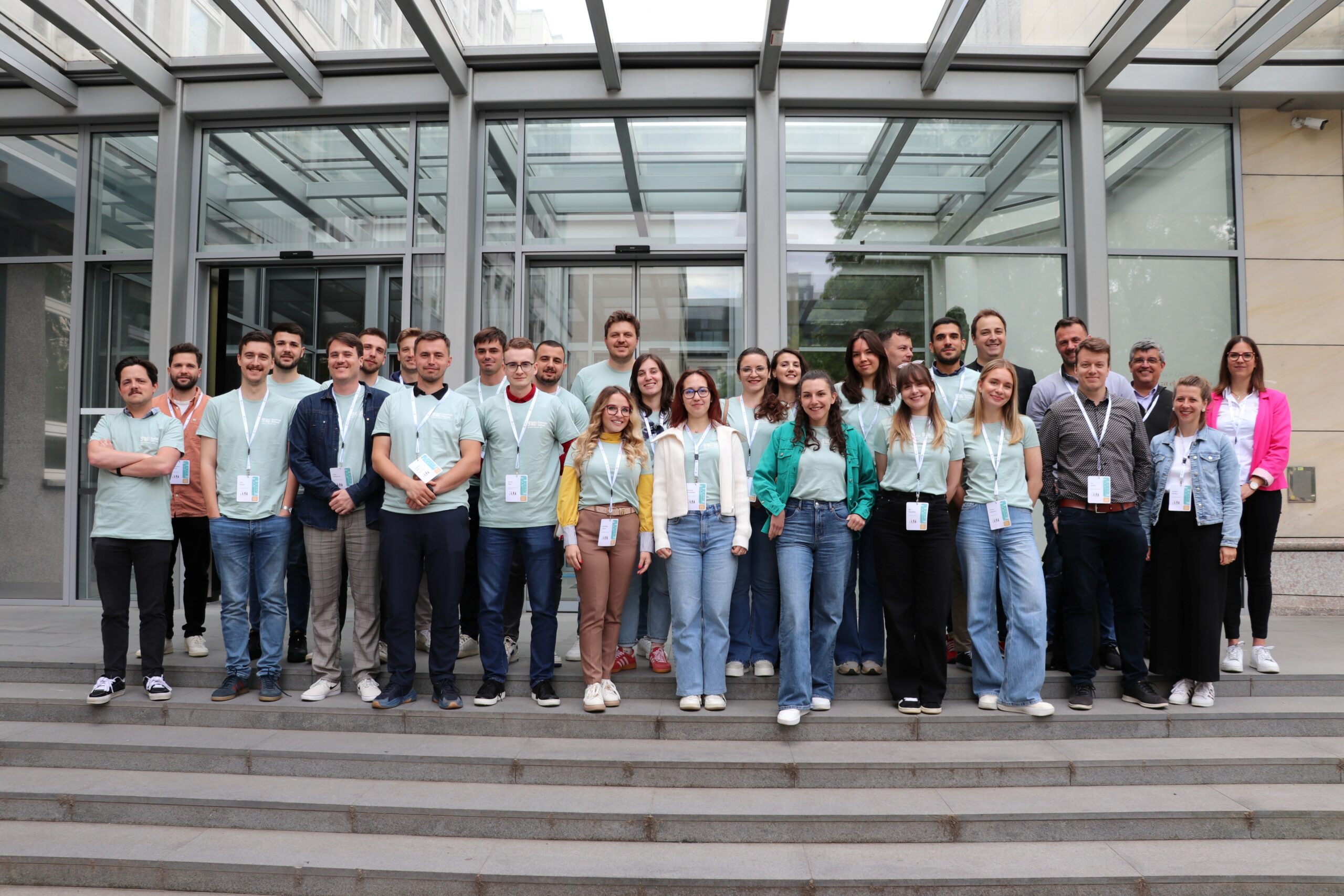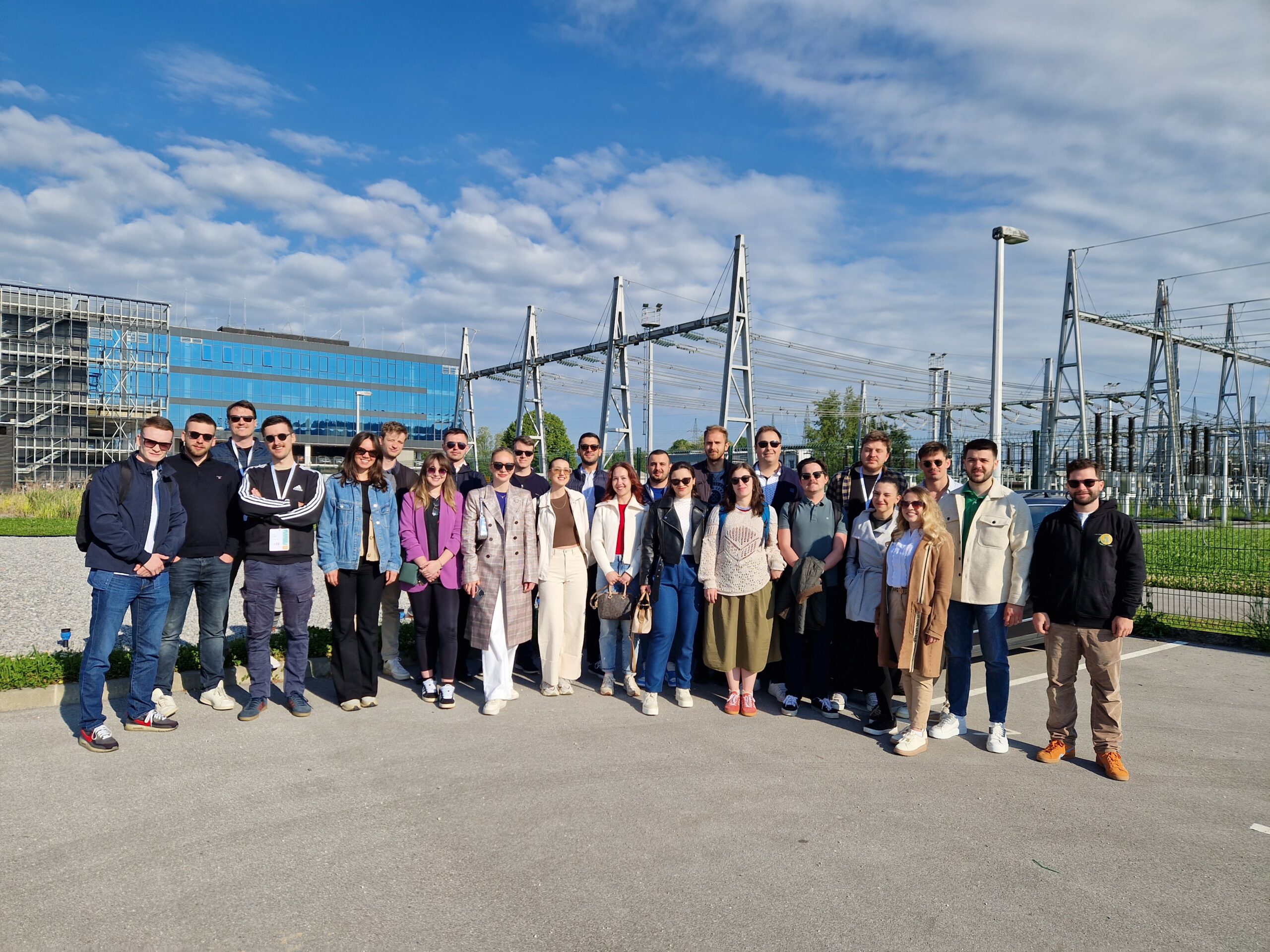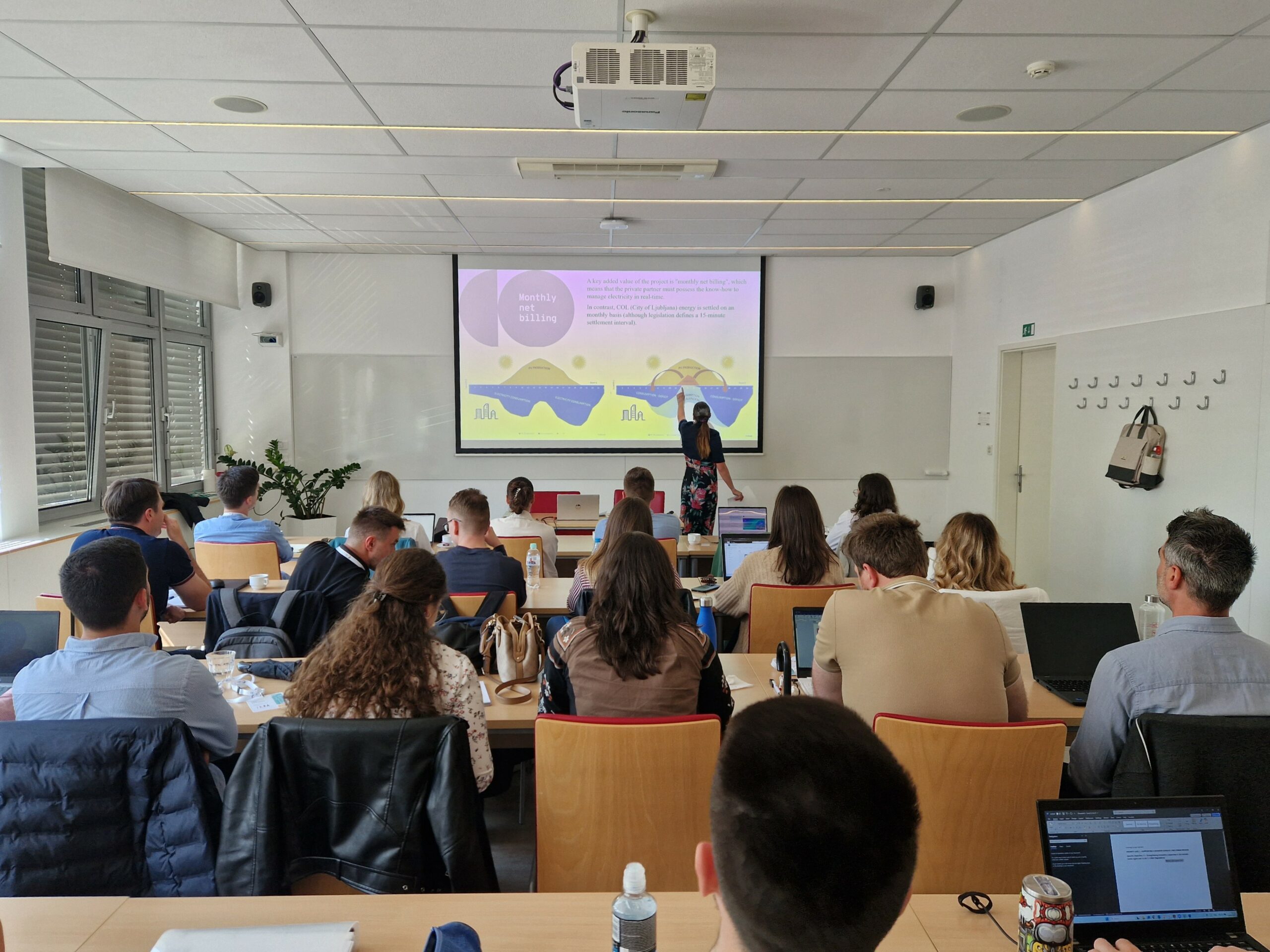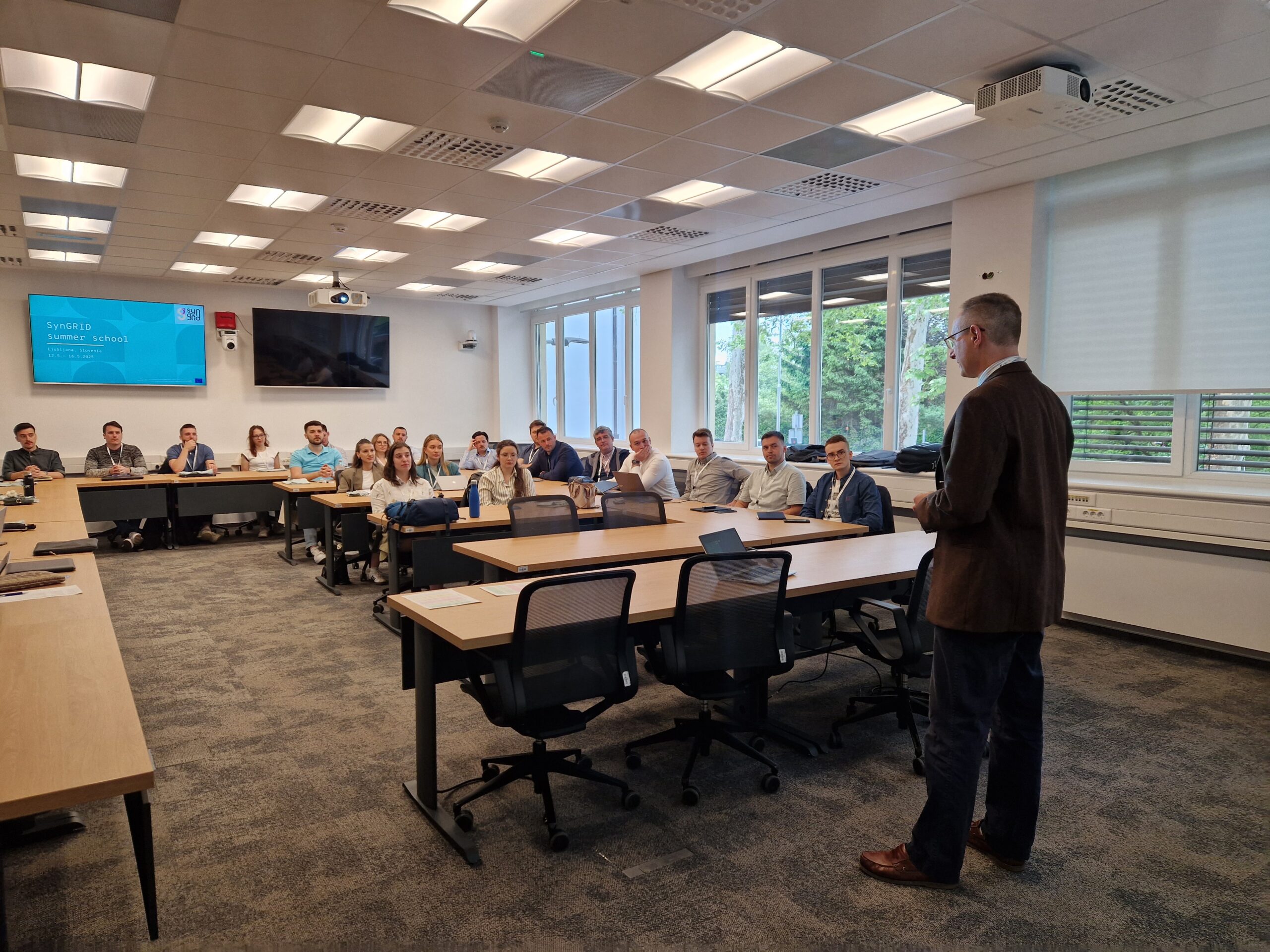20.05.2025
SynGRID Summer School 2025: Training Future Leaders in Flexible, Sustainable Energy
From May 12–16, 2025, the University of Ljubljana hosted the first SynGRID Summer School, an intensive, international program focused on the role of flexibility in driving Europe’s energy transition. Bringing together over 20 participants from Slovenia, Croatia, Serbia, Bosnia and Herzegovina, North Macedonia, Kosovo, Greece, Portugal, and Norway, the week-long event offered a dynamic mix of academic expertise, industry insight, and real-world applications.
Organized by the Institute for Innovation and Development of the University of Ljubljana and the Laboratory of Energy Policy, the summer school provided a unique platform for young researchers and professionals to explore critical topics in power systems, including battery energy storage, demand-side flexibility, smart grids, energy communities, and regulatory frameworks shaping the future of energy in Europe.
The program combined interactive lectures with engaging field visits to ELES, Slovenia’s national transmission and distribution operator, and NGEN, a pioneer in energy storage and grid services. These visits brought theory to life and showcased how flexibility mechanisms are implemented in practice to support grid resilience and renewable integration.
SynGRID 2025 also proudly hosted several distinguished guest speakers, whose contributions enriched the program with practical insight, policy depth, local and international perspective.
Ms. Petra Šeme, Head of the Energy Management Office at the City of Ljubljana, presented the city’s comprehensive green energy strategy highlighting solar installations on 51 public buildings, the creation of Slovenia’s largest energy-sharing community, and the decarbonisation of district heating and public transport systems. Her session underscored the critical role of municipalities in implementing national climate targets through local action.
Dr. Tomislav Tkalec from the Ministry of Environment, Climate and Energy provided a deep dive into Slovenia’s 2030 renewable energy goals, including a 55% RES target for electricity and buildings. He addressed the legal and spatial planning challenges tied to the RED III directive, and introduced participants to Slovenia’s innovative agrivoltaics pilot, blending food production with solar energy deployment.
Mr. Leandro Lind from ACER offered an international perspective on flexibility markets and consumer-centric energy systems, sparking dialogue on the socio-technical dimensions of energy transition and lessons from other EU regions.
Participants also explored the future of transport and flexibility through a session featuring Avant Car and Kolektor sETup. Avant Car, Central and Eastern Europe’s leading Mobility-as-a-Service (MaaS) provider, detailed the evolution of digital mobility, emphasizing how shared electric fleets, smart charging infrastructure, and clean vehicle services are transforming both urban transport and the electricity market. Kolektor sETup complemented this perspective by presenting real-life examples of flexibility services delivered to their customers. Their team showcased how they are actively developing and deploying their advanced energy asset management platform, OPTIMA, supported by several EU-funded innovation projects.
Alongside the guest lectures, project partners delivered in-depth sessions on the evolving roles of distribution system operators, aggregation of distributed energy resources, market-based flexibility, and the integration of energy communities within current legislative and technical frameworks. Discussions were backed by real-world examples, interactive group work, and participant-led presentations that demonstrated cross-disciplinary collaboration.
Throughout the week, participants engaged not only in academic learning but also in cultural activities and networking opportunities building lasting connections across borders, institutions, and energy sectors.
The SynGRID project is co-funded by the European Union’s Horizon Europe research and innovation programme under grant agreement Nº 101160145. It aims to enhance institutional and regional innovation in Widening countries specifically Croatia, Greece, and Slovenia by capitalizing on the outcomes of previous Horizon 2020 and ongoing Horizon Europe projects. The project focuses on improving the management, observability, and controllability of low-voltage grids in the context of increasing integration of Renewable Energy Sources (RES).
The SynGRID consortium comprises the following partners: Institute for Innovation and Development of the University of Ljubljana, Institute of Communication and Computer Systems Athens, Faculty of Electrical Engineering and Computing Zagreb, Faculty of Electrical Engineering, Computer Science and Information Technology Osijek and company Petrol.
Following the success of this first edition, the SynGRID Summer School will return in 2026, continuing its mission to empower the next generation of energy professionals and strengthen collaboration across Southeast and wider Europe.



